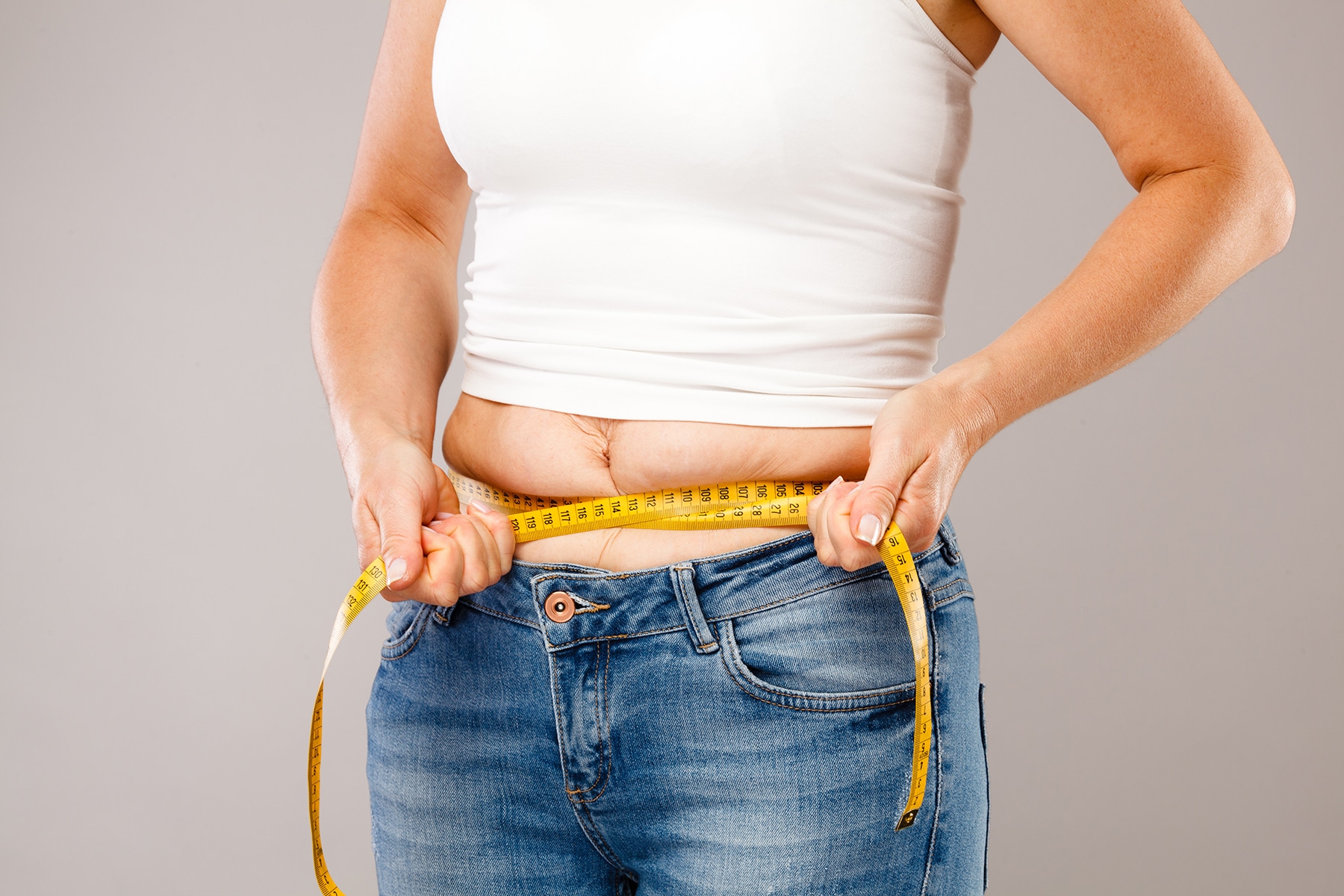Weight Gain
Symptoms in Detail
Weight gain is one of the most distressing symptoms of menopause.
Typically the weight gain is around the abdomen rather than the hip and thigh area.
What causes weight gain in menopause?
The main culprit of menopausal weight gain is estrogen.
As a woman’s estrogen level starts to decline her appetite starts to increase, and her metabolism, the rate at which the body converts stored energy in to working energy, is lowered.
On top of that, the body starts to use starches and blood sugars less effectively, increasing fat storage and making it harder to lose weight.
However, hormonal changes alone don’t necessarily trigger menopausal weight gain. There are usually other factors at play such as age, lifestyle and genetics.
Age related causes of weight gain
As women age many other factors can also contribute to weight gain.
Women are less likely to exercise, and their activity levels continue to decrease over time. Additionally, the rate at which energy is used up during exercise declines. Also, you lose muscle mass which lowers your resting metabolism making it easier to gain weight.
So if you haven’t before, now is a good time to add strength training to your exercise routine to build muscle mass and increase your metabolism.
Examples of strength training include weights, dumbbells, yoga, exercise bands or gardening. Aim to do these two to three times a week and combine with aerobic exercise such as walking, swimming, cycling, tennis or dance.
The goal should be to exercise moderately for at least 30 minutes most, if not every day.
What you can do to help minimise weight gain during peri/menopause?
Know the 34 symptoms of menopause
Here are all of the documented symptoms of menopause you need to look out for:
Physical Symptoms
- Incontinence
- Changes in Body Odour
- Bouts of Rapid Heart Beat
- Breast Pain
- Headaches
- Joint Pain
- Itchy Skin
- Burning Mouth Syndrome
- Electric Shock Sensation
- Digestive Problems
- Gum Problems
- Increased Tension in Muscles
- Formication - Crawly Skin
- Paresthesia - Numbness in Hands and Feet
- Osteoporosis - After Several Years







